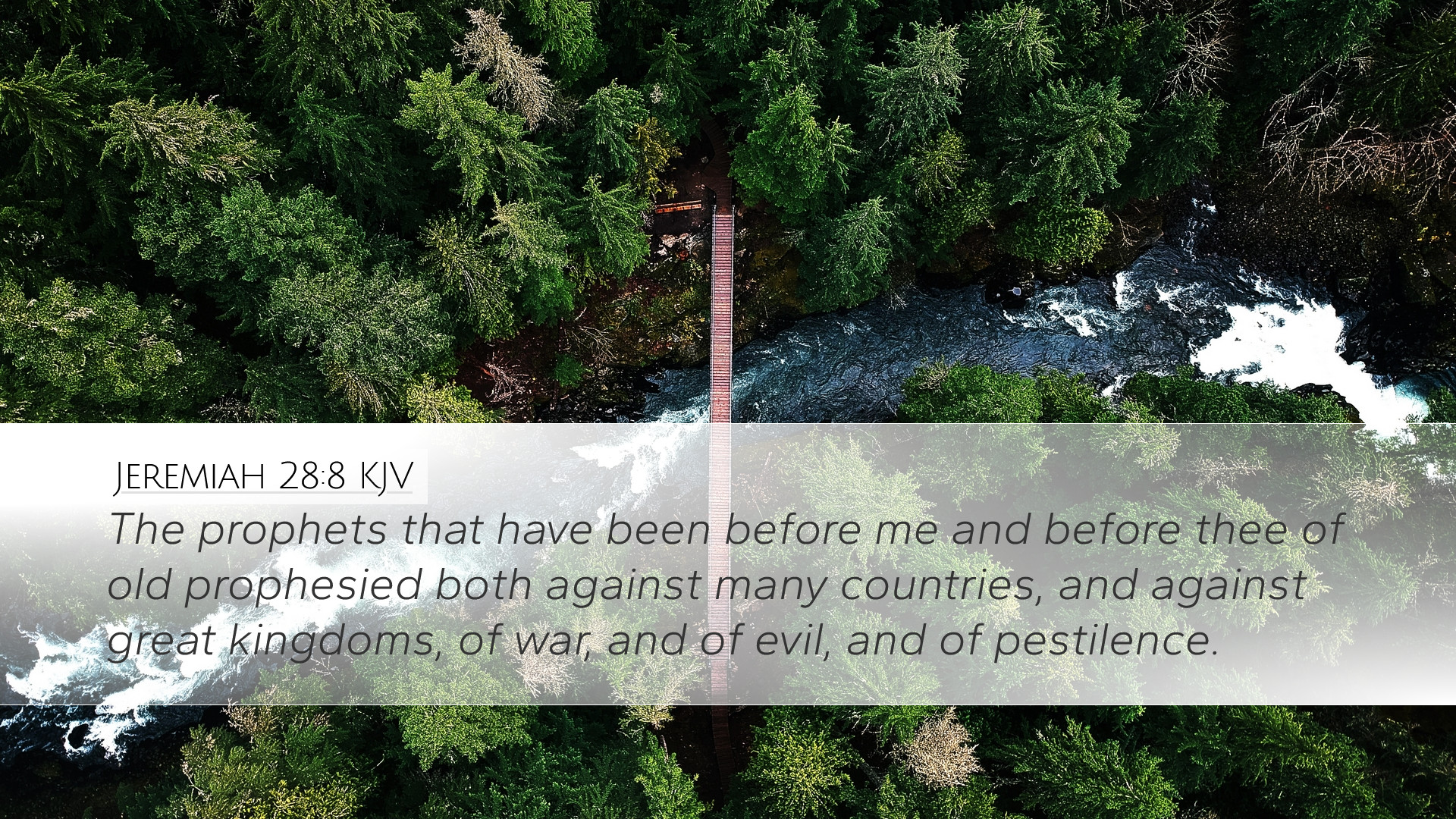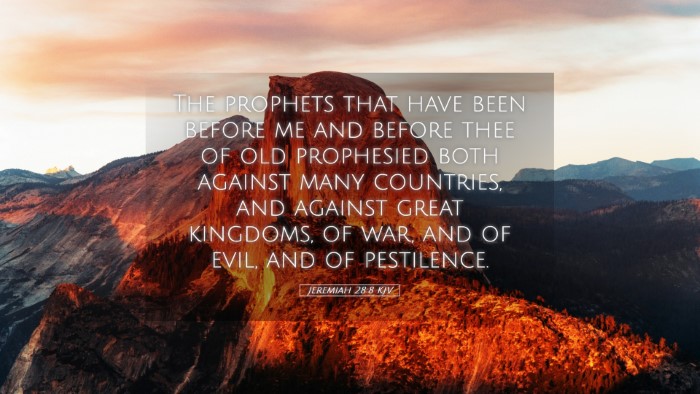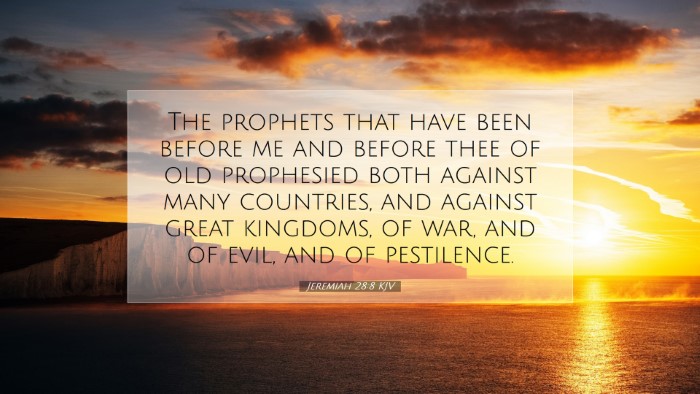Commentary on Jeremiah 28:8
Text of the Verse: "The prophets who were before me and before you from ancient times prophesied against many countries and great kingdoms, about war, disaster and plague." (Jeremiah 28:8, NIV)
Introduction
The Book of Jeremiah is a profound text that delves into the prophetic declaration concerning judgment, hope, and restoration. Jeremiah 28:8 is pivotal as it sets the context for understanding the prophetic discourse during a tumultuous time in Judah’s history. This commentary synthesizes insights from renowned public domain commentators such as Matthew Henry, Albert Barnes, and Adam Clarke.
Context of Jeremiah 28:8
This verse is part of a larger narrative where false prophets, particularly Hananiah, deliver messages of peace that contradict the dire warnings of Jeremiah. This backdrop is essential for grasping the weight of Jeremiah's statement about the faithful pronouncement of previous prophets.
Historical Background
Jeremiah’s ministry occurs during the decline of Judah leading up to the Babylonian exile. The people were facing imminent destruction while still clinging to false hopes. The mention of “prophets who were before me” indicates a lineage of prophetic voices that warned Israel and Judah about their disobedience and impending doom.
Insights from Commentators
This section synthesizes key reflections from several esteemed commentators.
Matthew Henry’s Perspective
Matthew Henry emphasizes the continuity of God’s truth through the ages. He notes, "The prophets who preceded Jeremiah, like Isaiah and Micah, consistently brought messages that admonished Israel to return to God’s ways." Henry also highlights that true prophets serve as instruments of God’s will, ensuring that the Lord's messages are faithfully communicated throughout generations.
Albert Barnes' Analysis
Albert Barnes provides additional contextual depth by pointing out that the prophets had warned of “wars, disasters, and plagues”, events that were both present realities and impending judgments. He asserts that the historical context of prophetic messages served as a clear warning to the people, illustrating the serious consequences of their unfaithfulness.
Barnes further remarks on the spiritual condition of the people, noting that their failure to heed past warnings reflects their hardened hearts—something that resonates deeply within the pastoral context today.
Adam Clarke’s Commentary
Adam Clarke offers rich theological insights, stating that the reference to prior prophets serves to assert the authority of Jeremiah's own message. Clarke insists, "Jeremiah sought to validate his prophecies by aligning them with the unbroken testament of God’s prior mandates through His prophets." Clarke also elucidates that the verse shows the nature of prophetic ministry as an enduring call to repentance.
Theological Implications
This verse holds significant theological implications for understanding divine communication.
Prophetic Tradition
- Legacy of Prophets: The continuity from earlier prophets not only affirms Jeremiah’s authority but also signifies God's unwavering pursuit of His people.
- Response to Prophecy: Effective prophecy elicits a response; the failure to heed warnings leads to dire consequences.
- Judgment and Hope: While the message is about impending judgment, there remains a thread of hope woven through the fabric of prophecy, pointing to future restoration.
Application for Today
Pastors and theologians can draw valuable lessons from this text: the importance of discerning true prophecy amidst false messages, the necessity of repentance, and the assurance of God’s continual call throughout history. Jeremiah 28:8 serves as a reminder that God’s messages are not new but are part of a larger Divine dialogue through time.
- Discernment in Ministry: Modern leaders must carefully discern the messages that align with Biblical truth.
- Hope in Crisis: In times of uncertainty, maintaining a perspective of hope rooted in God’s promises is essential.
- God's Sovereignty: Trusting in God's sovereignty and His ability to judge and restore is fundamental to faith.
Conclusion
Jeremiah 28:8 is more than a historical account; it is a timeless call to recognition of God's unchanging message through His prophets. By understanding this verse in the light of Matthew Henry, Albert Barnes, and Adam Clarke, we gain deeper insights into the prophetic role, the consequences of neglecting God's voice, and the eternal hope that lies within the Christian faith. Such understanding is crucial for pastors, students, and scholars as they engage with the complexities of prophetic literature and its application in today’s world.


